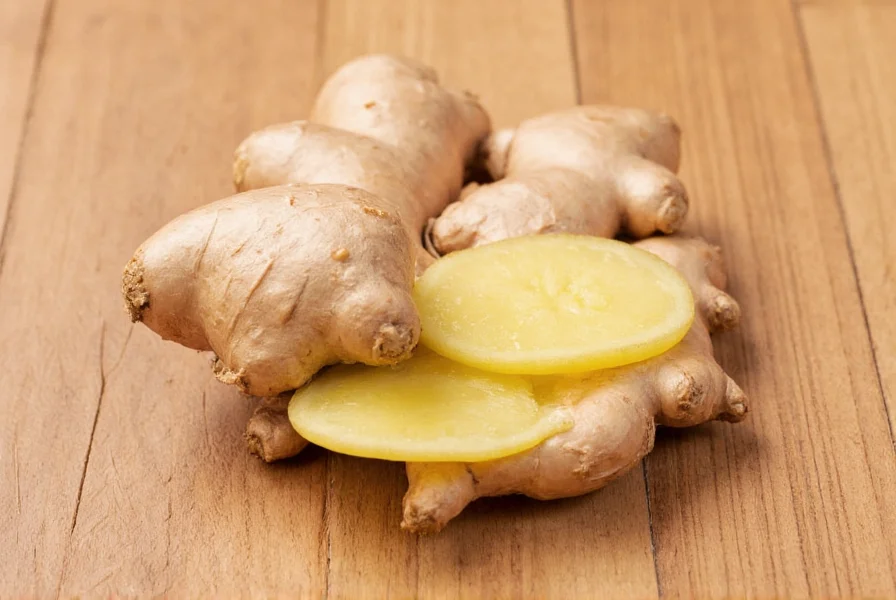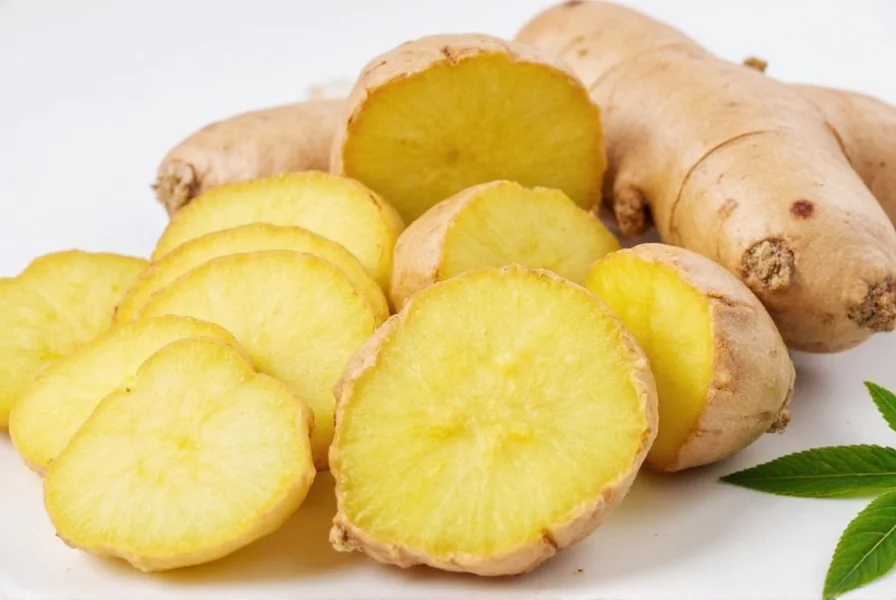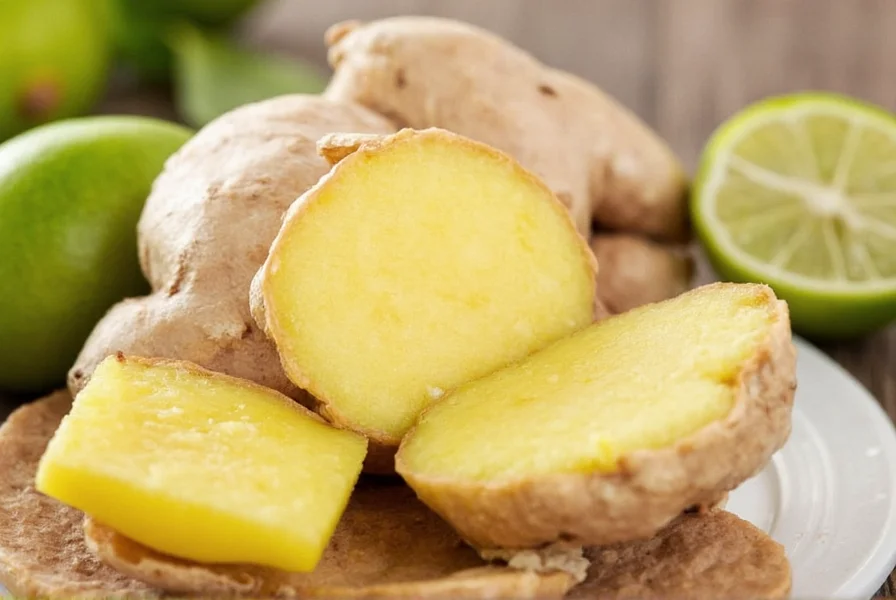For centuries, ginger has been valued in traditional medicine systems worldwide for its therapeutic properties. As interest grows in natural approaches to support kidney health, many wonder about ginger's specific effects on these vital organs. This article examines the current scientific understanding of ginger's relationship with kidney function, separating evidence-based findings from popular claims.
The Science Behind Ginger and Kidney Health
Ginger (Zingiber officinale) contains bioactive compounds, particularly gingerols and shogaols, that demonstrate significant anti-inflammatory and antioxidant effects. These properties form the basis for ginger's potential kidney benefits. Research published in the Journal of Renal Nutrition indicates that ginger supplementation may help reduce oxidative stress markers in individuals with certain kidney conditions.
A 2020 systematic review analyzing multiple studies found that ginger extract demonstrated protective effects against kidney damage in animal models, particularly in cases of toxin-induced injury. The researchers attributed these effects to ginger's ability to combat oxidative stress and inflammation—two key factors in kidney disease progression.

Ginger's Potential Benefits for Kidney Function
Several mechanisms explain how ginger might support kidney health:
- Antioxidant protection: Ginger compounds help neutralize free radicals that can damage kidney tissue
- Anti-inflammatory effects: Chronic inflammation contributes to kidney disease progression, which ginger may help mitigate
- Improved blood circulation: Better blood flow supports optimal kidney filtration
- Potential blood pressure regulation: Some studies suggest ginger may help maintain healthy blood pressure levels
Research specifically examining ginger's impact on kidney stone formation shows promising but preliminary results. A study in Urology Journal noted that ginger's diuretic properties might help prevent certain types of kidney stones, though more human studies are needed to confirm these findings.
Important Considerations and Potential Risks
While ginger shows potential benefits, several important considerations exist for those concerned about kidney health:
| Consideration | Details | Recommendation |
|---|---|---|
| Ginger and kidney disease | May interact with medications or conditions | Consult healthcare provider before regular use |
| Potassium content | Ginger contains moderate potassium levels | Monitor intake if on potassium-restricted diet |
| Blood thinning effects | Ginger may enhance blood-thinning medications | Discuss with doctor if taking anticoagulants |
| Appropriate dosage | Excessive amounts may cause issues | Limit to 1-2 grams daily unless directed otherwise |
Individuals with advanced kidney disease should exercise particular caution. While moderate dietary ginger is generally safe, medicinal doses may pose risks for those with compromised kidney function. The National Kidney Foundation notes that certain herbal supplements can accumulate in the body when kidneys aren't functioning properly, potentially causing harm.
How to Safely Incorporate Ginger for Kidney Support
For those interested in ginger's potential kidney benefits, these evidence-based approaches offer safe integration:
- Dietary incorporation: Add fresh ginger to meals (about 1/2 to 1 teaspoon grated)
- Ginger tea: Steep 1-2 grams of fresh ginger in hot water for 5-10 minutes
- Culinary use: Include ginger in stir-fries, soups, and salad dressings
- Supplementation: Only under healthcare provider guidance for specific conditions
Remember that ginger should complement—not replace—established kidney health practices like staying properly hydrated, maintaining a balanced diet, and following medical advice. The American Society of Nephrology emphasizes that no single food or supplement can prevent or treat kidney disease, but a holistic approach to nutrition supports overall kidney function.

Expert Recommendations on Ginger and Kidney Health
Nephrologists and nutrition experts generally agree that moderate ginger consumption as part of a balanced diet poses minimal risk for most people with healthy kidneys. However, they caution against viewing ginger as a standalone solution for kidney problems.
Dr. Elena Rodriguez, a registered dietitian specializing in renal nutrition, explains: "Ginger can be a valuable component of a kidney-supportive diet due to its anti-inflammatory properties, but it works best as part of a comprehensive approach that includes adequate hydration, appropriate protein intake, and blood pressure management."
When considering ginger for kidney health, experts recommend:
- Consulting with your healthcare provider before using ginger medicinally if you have kidney disease
- Avoiding excessive consumption (more than 4 grams daily)
- Monitoring how your body responds to ginger
- Choosing fresh ginger over processed supplements when possible
- Being aware of potential interactions with medications
Conclusion
The relationship between ginger and kidney health shows promise but requires careful consideration. Current evidence suggests ginger's anti-inflammatory and antioxidant properties may offer protective benefits for kidney function, particularly when consumed in moderate dietary amounts. However, ginger is not a treatment for kidney disease, and those with existing kidney conditions should consult healthcare professionals before using ginger medicinally.
As research continues to evolve, the most prudent approach involves incorporating ginger as part of an overall kidney-healthy lifestyle that includes proper hydration, balanced nutrition, regular exercise, and medical supervision when needed. Understanding both the potential benefits and limitations of ginger helps individuals make informed decisions about supporting their kidney health naturally.
Can ginger help prevent kidney stones?
Some preliminary research suggests ginger's diuretic properties might help prevent certain types of kidney stones by increasing urine volume. However, human studies are limited, and ginger should not be considered a primary prevention method. Staying well-hydrated remains the most effective strategy for kidney stone prevention.
Is ginger tea safe for people with chronic kidney disease?
Moderate consumption of ginger tea (1-2 cups daily) is generally safe for most people with early-stage chronic kidney disease. However, those with advanced kidney disease or on potassium-restricted diets should consult their nephrologist first, as ginger contains moderate potassium levels and may interact with certain medications.
How much ginger is safe to consume for kidney health?
For general kidney health support, 1-2 grams of fresh ginger daily (approximately 1/2 to 1 teaspoon grated) is considered safe for most people. This can be consumed as tea, added to food, or used in cooking. Higher medicinal doses should only be used under healthcare provider supervision, especially for those with kidney conditions.
Does ginger interact with kidney medications?
Yes, ginger may interact with certain kidney-related medications, particularly blood thinners and blood pressure medications. Ginger has mild blood-thinning properties and may enhance the effects of anticoagulant drugs. If you take medications for kidney conditions, consult your healthcare provider before regularly consuming ginger in medicinal amounts.
Can ginger improve kidney function in healthy individuals?
While ginger's antioxidant properties may provide general protective benefits for kidney tissue in healthy individuals, there's no evidence it significantly improves kidney function beyond normal levels. For people with healthy kidneys, ginger is best viewed as part of an overall healthy lifestyle rather than a specific kidney function booster.











 浙公网安备
33010002000092号
浙公网安备
33010002000092号 浙B2-20120091-4
浙B2-20120091-4